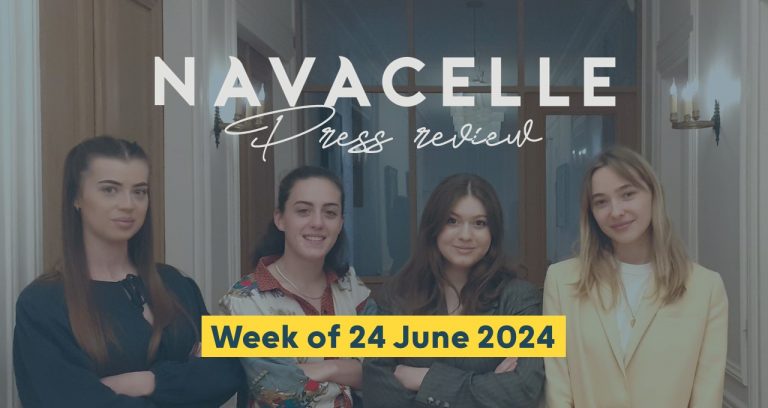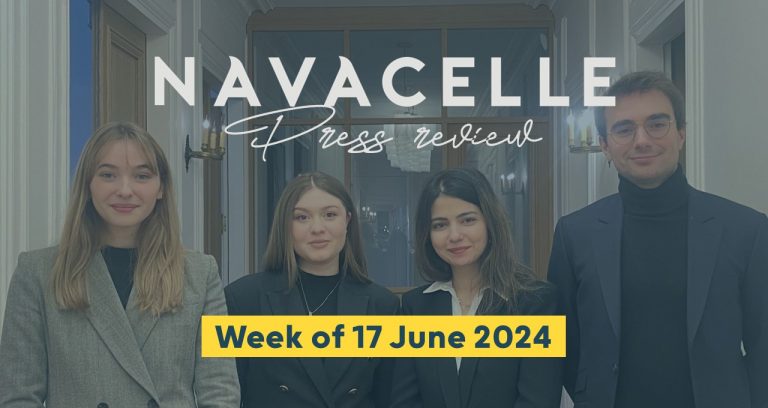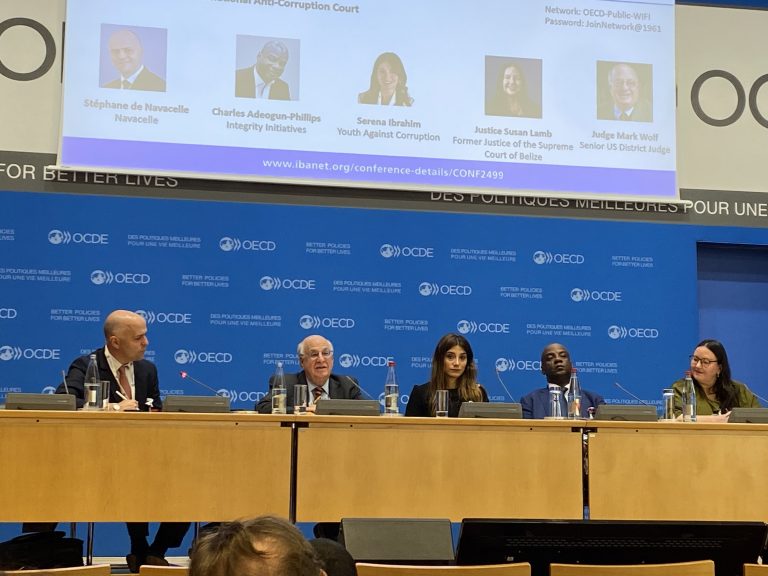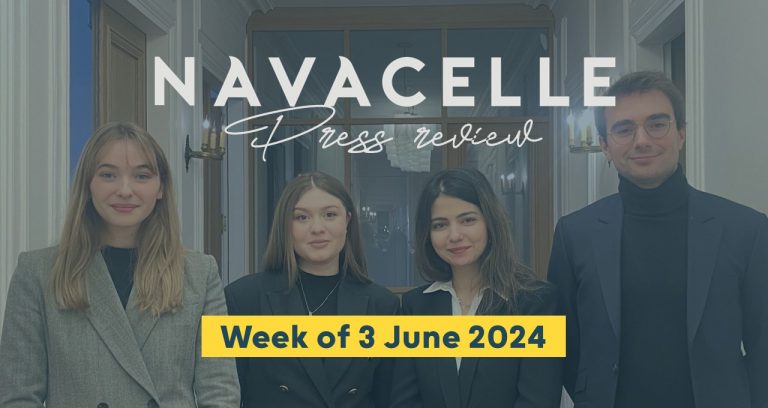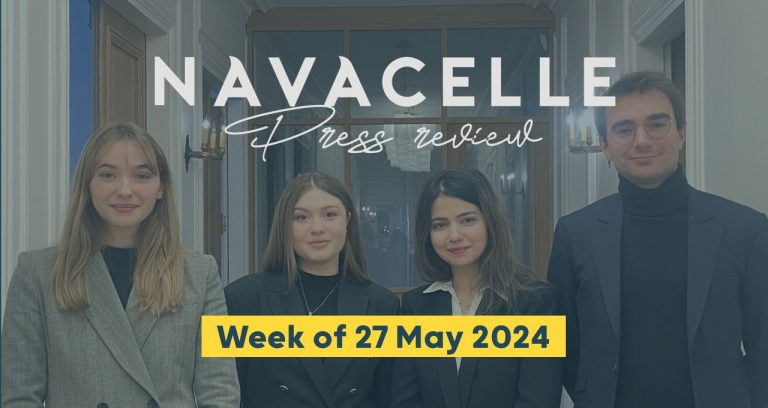On 27 March 2017, France adopted law n°2017-399 on the duty of vigilance of parent companies and ordering companies, known as the “duty of vigilance law”, which requires large French companies to adopt measures to prevent serious violations of human rights, fundamental freedoms, health and safety of persons and environment.
Since 2019, non-governmental organizations, associations and trade unions have brought notices of action and sued many companies based on this law to defend human rights, fundamental freedoms and the environment. Despite the numerous challenges related to the correct application and interpretation of this law, they persist and multiply their efforts in holding companies accountable.
One recent example concerns the non-governmental organizations ClientEarth, Surfrider Foundation Europe, and Zero Waste France (hereinafter the “NGOs”), which sued Danone before the Paris Judicial Court on 9 January 2023 for violation of the duty of vigilance law after giving them formal notice on 28 September 2022 to commit more firmly to the fight against plastic, and which recently entered into mediation in September 2023 to reach an agreement.
This procedure against Danone (II) is an opportunity to briefly review the main principles of the duty of vigilance law (I).
I. The duty of vigilance law requires companies subject to it to implement a vigilance plan under penalty of being forced to do so by a court and being subject to civil liability
The duty of vigilance law requires French companies with at least 5 000 employees in France or at least 10 000 employees in France and abroad to implement a vigilance plan.[1]
This vigilance plan aims to identify and prevent serious violations of human rights and fundamental freedoms, health and safety of persons and environment caused by the activities of the companies as mentioned above and those of their subcontractors or suppliers.[2]
This vigilance plan must include a risk mapping, procedures for regular assessment of the situation of subsidiaries, subcontractors, and suppliers, appropriate actions to mitigate risks or prevent serious violations, a mechanism for alerting and collecting reports of the existence or occurrence of risks, and a mechanism for monitoring and evaluating the measures implemented.[3]
In case of non-compliance with the obligation to implement a vigilance plan, any person or entity with interest in the matter may send a formal notice to comply to the companies subject to it (i.e., NGOs, associations, and trade unions for the defense of human rights, fundamental freedoms, and the environment). Within three months of an unsuccessful formal notice, the person may then ask the court to order the companies to comply, if necessary, under penalty.[4]
In addition, if a non-complying company subject to this obligation causes damage to a person or an entity, this may give rise to civil liability against the company for damages which compliance with the duty of vigilance law would have prevented.[5] To bring such a claim, the person harmed must establish the company’s non-compliance with the law (for example, by demonstrating that the company has not implemented one of the components of its vigilance plan or that it has not established a vigilance plan that effectively prevents or mitigate the serious harm mentioned), the damage it has suffered and the causal link between the two.
Pursuant to this text, which legally obliges companies to adopt a policy to prevent human, health, safety and environmental risks and the damage that may result from them, several legal actions have emerged. First, deadlocked by a lengthy debate on jurisdiction, decided by a decision of the French Supreme Court (Cour de Cassation) on 15 December 2021 recognizing the jurisdiction of the Judicial Court[6] and the adoption of a law to this effect on 22 December 2021,[7] actions have increased and several decisions have been issued this past year.
II. Danone on the radar of several NGOs for its plastic pollution
A. A coalition of NGOs sued Danone before the Paris Judicial Court for failing to adopt a vigilance plan to combat plastic pollution effectively
In line with the actions initiated on the basis of the duty of vigilance law since 2019 and the intensified the last few years, Danone was the first company sued in 2023 on this basis and the first concerning plastic pollution,[8] thus bringing the total to 24 procedures (formal notices or summons) initiated under the duty of vigilance law on 9 January 2023.[9]
On 28 September 2022, the NGOs, ClientEarth, Surfrider Foundation Europe, and Zero Waste France, issued a formal notice to nine French companies specializing in the agri-food industry (Danone, Carrefour, Auchan, Casino, Les Mousquetaires, Lactalis, Nestlé, McDonald’s and Picard) to comply with the duty of vigilance law and to adopt measures capable of preventing infringements related to the use of plastic.[10]
They consider that these companies are among the most significant users of plastic in France, if not the world, and, having the power to positively influence the plastic sector due to their size and proportion in the market, they must lead by example by reducing their use of plastic.[11] However, they found that some of these companies still needed to publish a vigilance plan or published unsatisfactory vigilance plans with incomplete measures or no mention of plastic.[12]
Therefore, they asked these companies to publish a complete plastic assessment covering all their activities and value chain and, on this basis, to build and implement a “deplasticization” plan with quantified and dated targets.[13]
Finding Danone’s response insufficient, the NGOs coalition subsequently sued the company before Paris Judicial Court for non-compliance with the duty of vigilance law.[14] They argue that Danone’s 2021 vigilance plan does not identify the use of plastic as a significant risk related to its activities and does not explain how to mitigate this risk.[15] On the other hand, Danone denies any accusation and believes that its vigilance plan meets the requirements set by the legislator.[16]
The NGOs demand that Danone comply with the duty of vigilance law, and, more specifically, reiterate the demands mentioned in their formal notice, with the difference that, using the mechanisms offered by the duty of vigilance law, they call for Danone to be sentenced to a penalty of EUR 100,000 per day of delay beyond six months if it fails to comply with their demands.[17]
B. Paris Judicial Court ordered that Danone and the NGOs behind the summon attempt to find a satisfactory solution through mediation
On 18 September 2023, the NGOs, ClientEarth, Surfrider Foundation Europe and Zero Waste France, informed that the judge had ordered them that the next step in their action would be to enter into mediation with Danone in order to find a “viable solution” and, should this fail, that legal proceedings would resume. They stated that this would be an opportunity for them to present their expectations in detail.[18]
This decision from the Paris Judicial Court is in line with the decisions issued in the Total cases on 28 February and 6 July 2023 and in the Suez case on 1 June 2023, in which the Paris Judicial Court emphasized the need for formal notice prior to legal action for non-compliance with the obligation to implement a vigilance plan, and its quasi-equivalent nature to mediation.
Indeed, the Paris Judicial Court stated in its decisions dated 28 February 2023 regarding the Total Energies case that “the legislator’s intention to introduce a collaborative process for drafting the vigilance plan is expressed and materialized by the formal notice mechanism” and that this formal notice must be “considered as a necessary precondition to the issuing of an order by the judge” which objectives are (i) “to introduce a mandatory phase of dialogue and informal discussions during which the company can answer to criticisms of its vigilance plan and make any necessary changes”, and (ii) to guarantee “legal security” and enable the “development of out-of-court alternatives for resolving disputes”.[19]
A few months later, the Paris Judicial Court reiterated this position, stating in its decision of 1 June 2023 regarding the company Suez that “any action aimed at ensuring compliance with the obligations it [article L225-102-4 of the Commercial Code] sets out must be preceded by a formal notice”, and that this formal notice “responds to the legislator’s intention to introduce a dialogue between the company required to draft the plan and the persons likely to be impacted by its activity”, in that it “enables the company to answer any criticisms made and, if necessary, to modify its plan”.[20]
In line with its previous case law, the Paris Judicial Court affirmed in its decision dated 6 July 2023 in a second case regarding Total Energies, almost exactly as in the previous decision, that “any action based on non-compliance with the obligations it [article L225-102-4 of the Commercial Code] imposes must, under penalty of inadmissibility, be preceded by a formal notice”, and that this reflects the legislator’s intention that “any dispute regarding [the] duty of vigilance should give rise to a discussion between the parties before the matter is referred to the courts“, since the “formal notice should enable the party against whom it is served to discuss its demands with the other party, before being sued in court”.[21]
This position of the court has been criticized by doctrine, which notes that the legislator insisted on the involvement of stakeholders only in the draft of the vigilance plan, and that the formal notice is more a simple procedural prerequisite for a court summons and a means of inciting the company to fulfill its obligations than a tool for developing an out-of-court settlement of the dispute or for collaboration.[22]
The doctrine considers that, understood as such, the formal notice could lead to the exclusion of the litigation procedure, which would seem to go against the intention of the legislator,[23] and would constitute a legal nonsense since the phase of drafting the vigilance plan must be distinguished from the litigation phase and that the parties are not the same during these two phases.[24]
In any case, as the Paris Judicial Court has, at least to date, definitively insisted on mediation prior to legal action, it is worth to be watchful as to the practical implementation of such action and the reality of the probability of success. Indeed, to date, although mediation has been successful in the Idemia case,[25] the very principle of mediation in the Total Energies case has been rejected by the parties.[26]
The mediation procedure initiated by Danone and the NGOs ClientEarth, Surfrider Foundation Europe and Zero Waste France will therefore certainly provide an interesting insight, all the more so given that the discussions are expected to be intense in view of the report published by the NGOs just ten days after the mediation procedure was announced, in which they challenge Danone’s vigilance plan for 2022 and conclude that “Danone has neither grasped the scale of the plastic crisis to which it is actively contributing, nor the urgency of its deplasticization”.[27]


